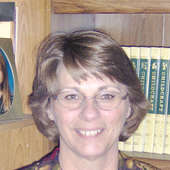Asking the right questions
I've written about Marcus before -- the little boy I looked after when my oldest, Ben, was still a babe in arms. Marcus was the most inquisitive human being I had ever encountered, repeatedly asking "why" about everything under the sun.
The first time I changed Ben's diaper in his presence, Marcus had at least a dozen "why?" questions following his initial, "What are you doing now?"
We repeated that exercise for every activity, whether folding laundry, washing dishes or simply preparing supper. (Supper preparations drew bonus questions because I had to justify each menu choice in addition to explaining why I was fixing supper in the first place.)
Marcus was right to be so inquisitive. He had a lot to learn and not a lot of time to learn it. He was killed at age 9 in an accident on the farm. I still cringe remembering how many times, in utter frustration, I cut short his interminable questions with the statement, "Because I said so. That's why." (Although, to be fair, now that I think about it more than 35 years later, I realize that really was the only answer that stopped the flow of questions.)
"Why?" is a question that, if not externally verbalized, has nevertheless bounced around in nearly everyone's mind since the 9.0 earthquake and subsequent tsunami changed millions of lives in Japan and worldwide as news of the deaths and destruction spread. The question continues to resound as the evening news updates us daily on the latest threat of nuclear fallout from the damaged nuclear plants that fueled Japan's appetite for energy.
Although "why?" is an understandable question, it is seldom a helpful question in these situations.
In fact, trying to answer it may cause even more problems, because inevitably, someone will pose the answer that "they," meaning Japan in this instance, somehow "had it coming." I was dismayed (although, sadly, not surprised) to see just that line of thought addressed by a World War II veteran in the comments section of an online story Monday. I shudder to think of the cumulative weight of bitterness he has forced himself to carry over these long, long years.
Jesus warned his disciples against taking that approach to answering the "why?" of any tragedy when he spoke about the 18 men killed when a tower at Siloam fell on them, explaining in Luke 13:9 that, unless we repent, we are all subject to a fearful end.
The writer of Hebrews expanded on that teaching saying, "inasmuch as it is appointed for men to die once and after this comes judgment," in Hebrews 9:27, our time may be better spent asking and answering the question, "How now shall we live?"
The adage that there is nothing sure in this life except death and taxes is relative in every age because of its simple truth. We can deny it, avoid it, take every possible precaution against it and in the end, exercise and healthy eating notwithstanding, death comes and then "comes judgement."
Scripture talks about the books that will be opened as each man is judged in Revelation 20:12.
What is written in yours? What did you care about most in the short time you lived here among other men? Was it money? Fame? Your social standing? Did you always look out for No. 1? Did you keep scorecards so that no one got what you had coming, and always got what they had coming if they dared to cross you? Did your verbal litany include phrases like, "that's not my job," or "I don't have time" or variations of the theme "that's all people like them deserve."?
Jesus warns us not to store up treasures on earth in Matthew 6:19 where "moth and rust destroy, and where thieves break in and steal," but advises us to rather "store up treasures in heaven," because where our treasure is, there our "heart will also be," in Matthew 6:20 and 21.
If your neighbor were to write your epitaph, what would he say? If your wife were to write it, what brief words would she choose to describe you to any stranger passing by your gravestone?
Were you kind, in word and in deed? Was your word your bond? Did you love, both wisely and well? Were you open-handed and open-hearted, slow to anger but quick to forgive? These are heavenly treasures, these are heart treasures.
Scripture mentions another book, the Lamb's Book of Life. Is your name written there? That is the question to ask in times like these. Because the calamity that is Japan's today could one day be ours. How then shall we live?
"And I saw the dead, great and small, standing before the throne, and books were opened. Another book was opened, which is the book of life. The dead were judged according to what they had done as recorded in the books." Revelation 20:12 (NIV)
I don't have all the answers, but I know the One who does. Let's walk together for awhile and discover Him; together.
Dawn

